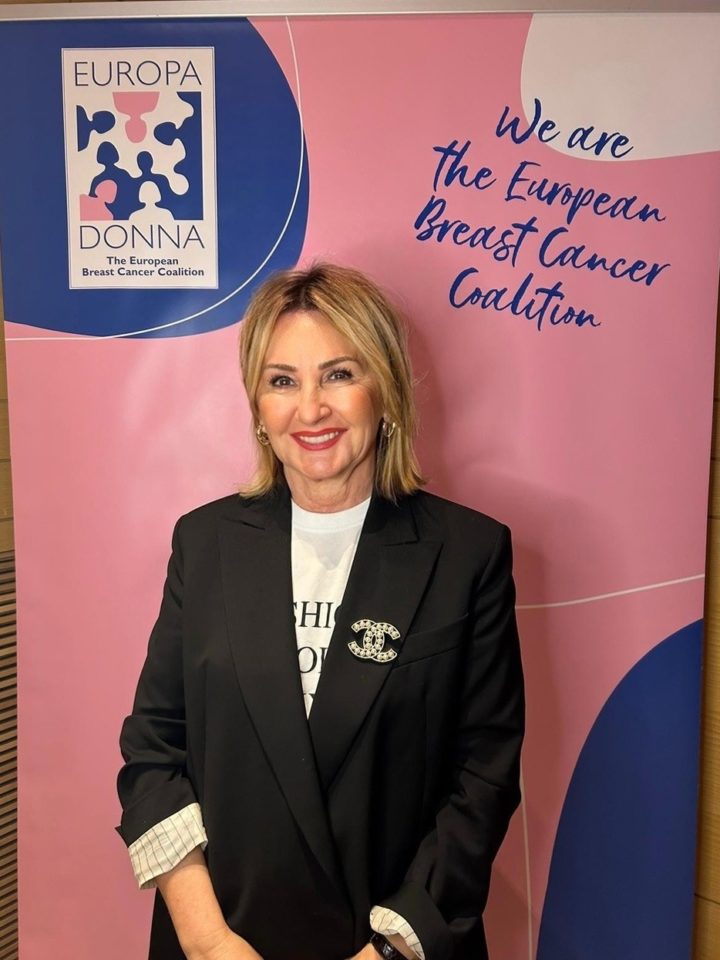In celebration of International Women’s Day, we not only honor women’s achievements but also want to emphasize a vital topic: women’s health. We spoke with Dr. Vesna Ramljak, PhD, head of the Cytology Department at the Ljudevit Jurak Clinical Institute of Pathology and Cytology, and president of the Europa Donna Croatia Association, to discuss this important issue. What advice does she have for women regarding their health? Read our interview to find out.
The HealthComm Forum 2025 conference, under the theme “The New Face of Health,” focuses on prevention and health preservation, rather than solely on the treatment of disease. In this context, and particularly considering the harmful consequences of breast cancer treatment, what would “The New Face of Health” be for women, and how could a shift in the healthcare paradigm from a reactive to a proactive approach contribute to the preservation of women’s health?
For me, among other things, “The New Face of Health” is primarily the right of all our patients to information. Unfortunately, until recently, we have been witnessing stories and confessions from our patients who do not know, and what is even worse, do not understand what will be done to them with certain therapeutic methods, nor what their therapy means, what consequences they can expect from it, and what their quality of life could be. After a diagnosis, they become patients and lose that much more important component of human wholeness. For all these reasons, I am happy that the previous paradigm is changing and that patients are becoming more proactive. I believe that every patient has the right to complete information with which they can identify, the right to ask questions, and not to be afraid of displeasing the doctor or, as they fear, not being treated well if they speak up. By “displeasing,” of course, they mean that they do not have the right to the time doctors should dedicate to them or, even worse, that they hide the fact if they want to seek a second opinion.
What is most important is to entrust your health and treatment with full confidence in your doctors, and consciously and reasonably embark on therapy in agreement with them. Let’s not forget that after the completion of medical/therapeutic treatment, the story for patients is not over—it is only then that the second part of life begins, which can be very difficult, complicated, and requires a lot of patience, sometimes long-term therapy, and, unfortunately, financial exhaustion. Because of all this, I consider it essential to address the individual needs of every patient. “The New Face of Health” also involves continuous education, which should begin in primary school, finding the best way to proactively teach and inform the population in a manner they find acceptable.
Considering that many women still do not have enough information about the importance of prevention and early detection of diseases, what message would you give them on the occasion of International Women’s Day when it comes to their own health?
It cannot be emphasized enough how crucial it is to detect cancer, including breast cancer, at the earliest stage possible. Cancer does not happen to someone else, it happens to us and our families. A woman is the pillar of life, and for this reason, it is extremely important to take care of her health—attending free mammogram screenings, regularly going for ultrasounds, being informed about potential hereditary diseases, and most importantly, listening to our body.
From your perspective, what role does the HealthComm Forum, as the only regional public discussion on the future of health bringing together key stakeholders from healthcare and other relevant sectors, play in shaping the healthcare system?
The role of the HealthComm Forum is primarily to establish and maintain dialogue among all stakeholders in the healthcare system, as well as other segments of society. Unfortunately, health is no longer something that simply happens to us, as it is influenced by many factors: stress, sedentary lifestyle, exposure to environmental factors, food quality, emotional relationships… Each of us can fall ill at any moment and become a patient, and each of us holds the greatest responsibility for our own health. However, this responsibility also extends to educational institutions, employers, food producers… I believe the HealthComm Forum opens new levels and forms of communication and the possibility of creating new synergies to improve and protect the health of Croatian citizens.
How do you see your role in changing the paradigm towards healthcare focused on prevention and patient well-being? How can your organization contribute to building a health system rather than a disease system?
The Croatian Breast Cancer Forum Europa Donna certainly plays a leading role in raising awareness about preventive activities in the fight against breast cancer and other malignant diseases, and as part of a European organization, we participate in similar efforts at the EU level and beyond. Recently, we have been increasingly focused on the quality of life of women after a diagnosis; from supportive forms of treatment combined with the treatment of the primary disease, care for comorbidities that patients may have, prevention and treatment of side effects, and more recently, protecting patients with malignant diseases from financial discrimination and poverty. With the progress of science and medicine, cancer is increasingly becoming a chronic disease, and we are fighting for patients diagnosed and treated for cancer to have their full role and all the rights as members of society.






